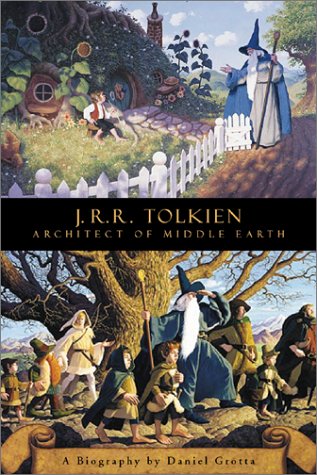What do you think?
Rate this book


200 pages, Paperback
First published January 1, 1976
The process of reifying mythology is quite complex, but appears to have the following elements: a world like our own, but different enough that it cannot be specifically identified; a pseudo-scholarly exposition of the natural, historical, cultural, and linguistic background of that world; the formula of a "rediscovered" rather than an invented world; a world that may not conform to all the known laws of nature, but does not obviously contradict them; a lengthy tale that would allow enough time in which to express all the aforementioned.. Tolkien did this so that modern people (who had access to the texts of Greek, Norse, Biblical, etc., myths but didn't connect with them because science and history proved them wrong) could take as real the world in which the story played out, and have a "modern myth", with all its psychological power. This is Grotta's idea, more or less, and it's interesting, at least.